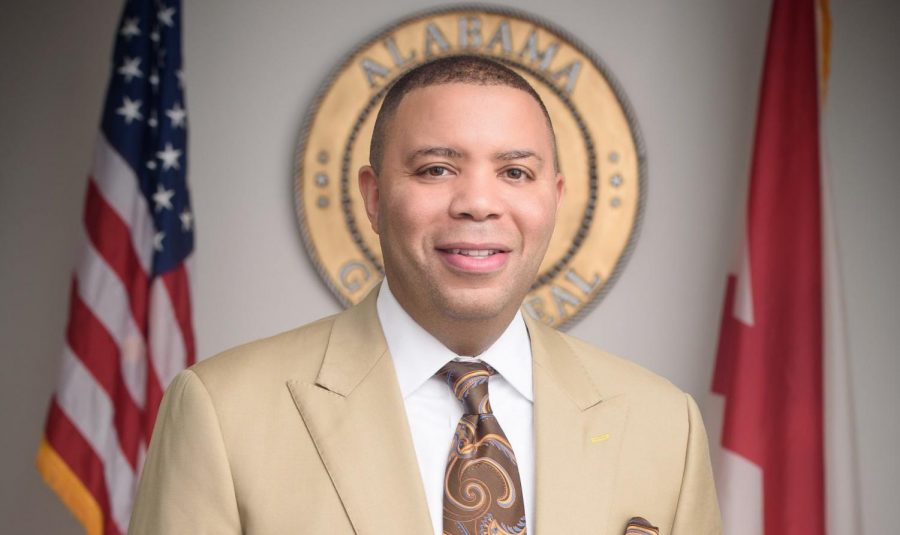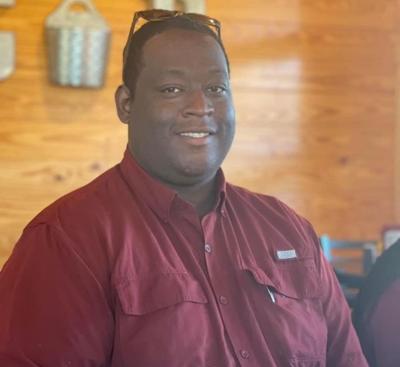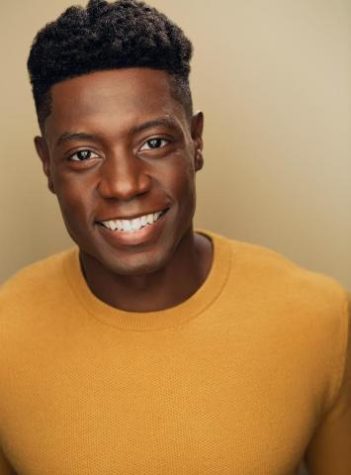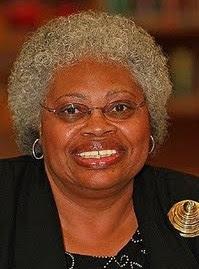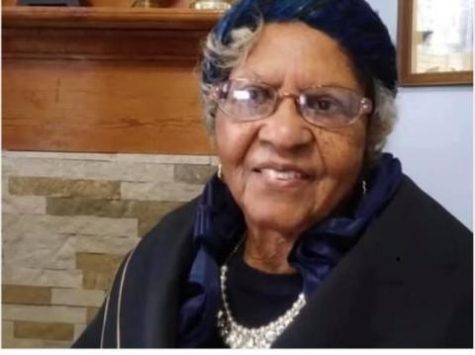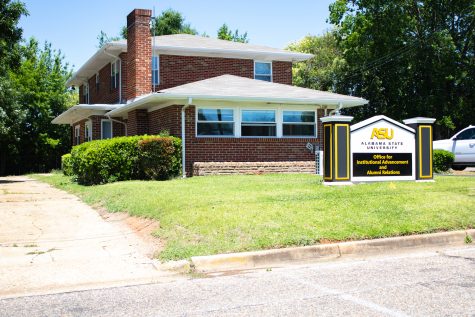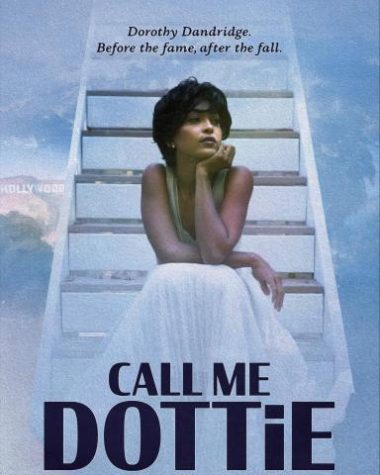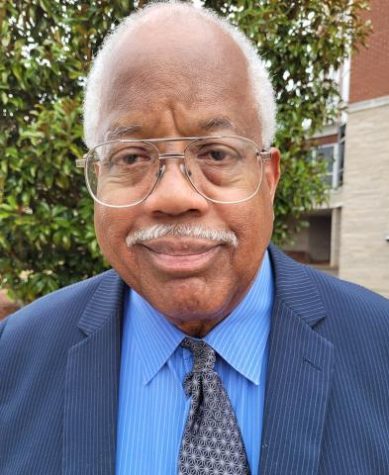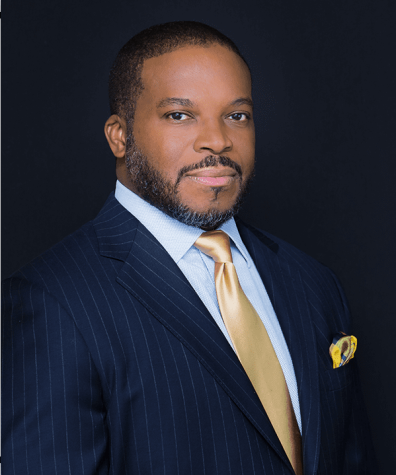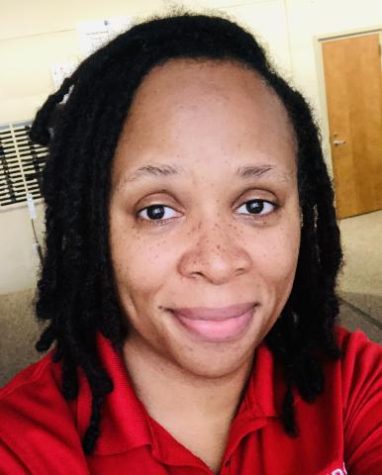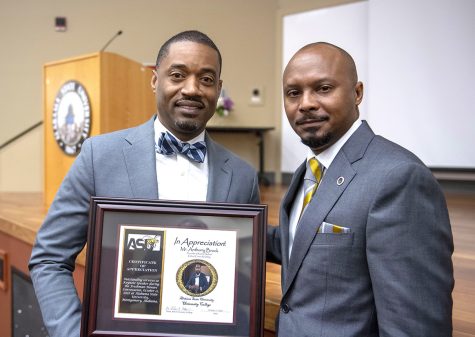From the basketball court to the court of law
Alumnus Danny Darnell Carr is the District Attorney for the Birmingham Division of Jefferson County since Nov. 27, 2018. Carr previously served as the county’s interim district attorney in 2017 and had been a prosecutor in that office for the past 17 years. He is the first African-American District Attorney in the Birmingham division of the Jefferson County, Alabama District Attorney’s office.
February 22, 2021
The relationship between the black community and the United States Criminal Justice System has been antithetical, and in most cases, adversarial for many centuries.
The topics of systemic racism, mass incarceration, and over policing are just a few of the problems that cause conflict between the two entities.
Some members of the black community have turned to protesting, petitioning and social media to bring attention to and fight these injustices, but Alabama State University alumnus Danny Carr has taken the legal approach.
Serving as the first African American District Attorney for the Birmingham Division of Jefferson County, Ala., Carr lives by the analogy, “If you do not have a seat at the table, then you are probably on the menu.”
Everyday, Carr works to bridge the divide between the black community and the criminal justice system by practicing the law, giving back to the community through non-profit organizations, and working closely with other officials to bring change. His work is motivated by his simple statement, “We’ve been on the menu for far too long.”
Carr was born and raised in Birmingham, Ala. He grew up in an inner city community that was filled with gang violence and societal neglect. Though he was surrounded by this environment, he allowed sports and a strong familial background to keep him out of trouble.
“Of course being from that neighborhood, most of my friends at this point are either in jail or dead,” he said.
Carr along with his younger brother, Jackstin Dannard Hunter, who was killed in 2006, was raised by a single mother, Regina Carr-Hope, who served as the principal at Wenonah High School.
Carr’s interest in law studies were a result of watching his favorite television show.
“I used to watch ‘Matlock’ all the time with mom and my grandmother … I used to always say, ‘Man, this is the smartest man in the room,’” Carr remembers. The show Matlock aired from 1986 to 1995. The show followed criminal defense attorney Ben Matlock as he takes on mysterious cases and makes genius connections in the courtroom.
As Carr continued to grow, he realized that understanding the law is just as important in the real world as it is on television, especially in the environment in which he grew up.
“My passion was figuring out how I can be a part of the solution to eradicate the problem, and one of the things that I kept coming back to was learning the law and becoming a lawyer,” Carr said.
He attended Jackson Olin High School and after graduation, decided that he would attend Alabama State University on a basketball scholarship, but he is quick to tell you that the money was not his sole reason for joining the Hornet family.
Carr comes from a long line of historically black college and university (HBCU) graduates. From tagging along with his relatives as a child, Carr fell in love with the atmosphere and energy that a HBCU campus holds.
“After visiting the campus, seeing the band, and being around HBCUs because of my family members, it was a natural progression for me to accept that basketball scholarship to attend ASU,” Carr said.
As a student, Carr kept busy by being a star athlete, and an involved member of the Beta Zeta chapter of Kappa Alpha Psi Fraternity, Inc. Though he was busy, Carr firmly believes that his involvement with these collegiate programs provided him the most memorable moments of his college years. Along with being able to socialize with his fellow Hornets at the Hardy University Center.
Carr revels in the memories of playing Alabama Agricultural and Mechanical University at our home gym, which at the time was the Charles Johnson Dunn Arena.
“It would only hold about 3,000 people, but I swear there seemed to be about 10,000 people in there,” Carr said. “Being in that atmosphere, playing in that gymnasium at that time will always be one of the biggest highlights of my life.”
The basketball program and his fraternity also provided him two mentors that made a major impact on his growth as a young man. Former basketball head coach James Oliver played a fatherly role during Carr’s collegiate years.
“When I got to campus, I did not know anybody,” Carr said. “However he was a guy that kept his word. He treated me like family all four years.”
The Beta Zeta chapter of Kappa Alpha Psi Advisor, Ralph Bryson, Ph.D., had the same effect on Carr during this time.
“He was a father away from home,” Carr said. “He showed a lot of interest in me early on and we had a lot of conversations that did not have to do with basketball or fraternities – conversations that were just about life.”
Carr’s many conversations with both men eventually built the maturity and drive that helped him in his next stage of life, law school.
After graduating in 1992 with a degree in criminal justice, Carr attended Miles College School of Law to pursue his dreams of becoming a prosecutor.
Though Miles College is also an HBCU with a rich atmosphere, he expressed that his personal and professional growth resulted in a different experience than what he had experienced at ASU.
“It was more of me just going to class and treating it as more of a business or professional setting,” Carr said.
Preparing for the Alabama Bar Exam was Carr’s main focus at this stage in his life, forcing him to work a part-time job during the day and attend his classes in the afternoon.
While studying at Miles, Carr admired the intimacy of classes and relationships he created with his professors.
“Most of the instructors were also currently practicing attorneys and judges. It really ended up being the right fit for me at the time,” he said.
His hard work paid off. Once he graduated from Miles School of Law in May of 2000 and passed the Alabama Bar Exam in February of 2001, Carr worked as a Juvenile Probation Officer for Jefferson County Family Court. While working in this position, he met with family friend, Judge Houston Brown, who knew of his aspirations of becoming a lawyer and decided to submit Carr’s name to the district attorney at the time, David Barber, to be hired as a prosecutor.
“I came over and interviewed with David Barber and the next day I was offered the job as the assistant district attorney,” Carr said. He worked as the assistant district attorney for the next 17 years under the service of David Barber.
In 2017, Carr served as the Interim District Attorney for a short time while the elected official, Charles Todd Henderson, was convicted on perjury charges. Though Carr was replaced as interim a few months later by Mike Anderton, he was elected to hold the position after a political race in 2018.
“I was elected in 2018 as the district attorney; notably the first African American District Attorney of Jefferson County,” he said.
To be the first in the black community to hold such a seat comes with great responsibility, but Carr accepts the title, responsibility, and all of the challenges that may come.
“Being the first does not mean anything if you do not do anything substantial with it…,” Carr said. “For me it means that I have come a long way. That the Lord has ordered my steps. If you think about it, you have a young man out of a rough community from a single parent household who went to an HBCU on an athletic scholarship, and then went to an unaccredited law school. I worked in the daytime and went to law school at night. That has to be God!”
He continued.
“There is no other way to put it. For me, I just want to make sure that I do right by the people that trust me with this position … The position does not change who I am and does not change how I feel about the people in the community. It just means that I have to make sure that I am always better. ”
As the district attorney, Carr is responsible for supervising a team of prosecutors, reviewing criminal cases, prosecuting high profile cases, reviewing police reports, and much more. Along with those duties, Carr also works to train police officers and deputies on the “Criminal Code”, which blatantly defines the different types of criminal offenses such as kidnapping, homicide, rape, and more. Training is meant to teach the officers how to identify the crime and how to appropriately behave while at the scene. Carr also has created, and is deeply involved with, various non-profit organizations aimed at the same type of urban communities where he grew up.
“There are a lot of programs that I am involved in but these three are significant because they are subjective programs that have a lot of meat behind them. They ultimately help to eradicate some of the issues that we have in our community,” Carr said. The program “District Attorney Leads the Gentlemen” is one aimed at the youth of the inner city community, it’s mission is to provide a new perspective towards the criminal justice system with hopes to steer the children away from trouble. He is also involved in the “Second Chance Job Fair” where they provide previously convicted individuals the opportunity to prepare for and find work. Carr also takes pride in the “Help the Families Initiative” that works with children who are troubled in school, encouraging them to stay focused and enrolled.
Outside of practicing in the law field himself, he has also served as an instructor at various universities. Over the years, he has taught constitutional law, criminal law and criminal procedure at Jefferson State Community College, Birmingham Southern College, and Miles School of Law, and has also taught trial procedures to prosecutors at the National Advocacy Center on the campus of University of South Carolina. Carr expresses that the most satisfactory part of teaching is knowing that he is helping his students hit their goals.
“The most rewarding thing about teaching is seeing the lightbulb go off when a student finally gets it… It is a good feeling to realize that you played a part in that person’s life, as they find their way and earn their degree,” he said. “I want them to understand that you can be whatever you want to be, but it is up to you. In other words, it is going to take work and it is going to take sacrifices but if it was easy then everybody would do it.”
Today, Carr lives alone with his daughter, Dera Carr, a [2020] graduate of Auburn University who is soon to start her law school journey.
Outside of his busy, yet extremely productive work schedule, Carr has little time for personal hobbies.
“My hobby at this point is whenever I can get a moment by myself to rest and reflect.”
Though many years later, he remains a basketball fanatic and enjoys watching a game whenever he can get the an opportunity.
To current ASU students, Carr advises, “Enjoy your experience… Enjoy every chance you get to be on the campus and broaden your mind.”
He urges current Hornets to seize every opportunity presented to them without fear.
“You have to believe in yourself and understand that even if you fail you can get back up, dust yourself off, and try again. If you never step foot in the game you never have a chance to win it.”
It is with this fearlessness that Carr works to bring justice to his people, and ultimately bridge the gap between the black community and criminal justice system, once case at a time.


